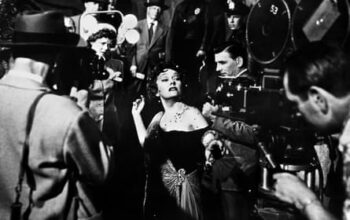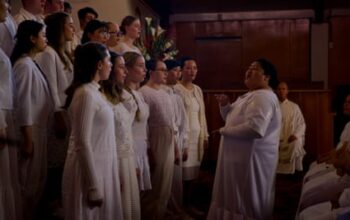David Lynch, the maverick American director who sustained a successful mainstream career while also probing the bizarre, the radical and the experimental, has died aged 78.
“It is with deep regret that we, his family, announce the passing of the man and the artist, David Lynch,” read a Facebook post. “We would appreciate some privacy at this time. There’s a big hole in the world now that he’s no longer with us. But, as he would say, “Keep your eye on the donut and not on the hole.” It’s a beautiful day with golden sunshine and blue skies all the way.”
Last August, Lynch said he had been diagnosed with emphysema and in November, spoke further about his breathing difficulties. “I can hardly walk across a room,” he said. “It’s like you’re walking around with a plastic bag around your head.”
Deadline reported that sources had said Lynch’s health took a turn for the worse after he had to evacuate from his home due to the Los Angeles wildfires.
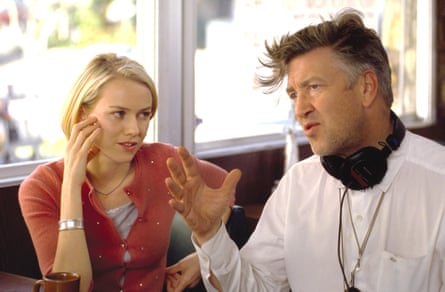
Lynch ploughed a highly idiosyncratic furrow in American cinema: from his beginnings as an art student making experimental short films, to the cult success of his surreal first feature Eraserhead, and on to a string of award-winning films including Blue Velvet, Wild at Heart and Mulholland Drive, as well as the landmark TV show Twin Peaks. He received three best director Oscar nominations (for Blue Velvet, The Elephant Man and Mulholland Drive), and was given an honorary lifetime achievement Oscar in 2019; he won the Palme d’Or at the Cannes film festival for Wild at Heart in 1990.
Lynch also avidly practiced transcendental meditation, setting up the David Lynch Foundation for Consciousness-Based Education and World Peace in 2005; he also produced paintings, released albums (including collaborations with Julee Cruise, Lykke Li and Karen O), created a long-running YouTube weather report and opened a nightclub in Paris in 2011. In 2018 he explained his reclusive lifestyle to the Guardian: “I like to make movies. I like to work. I don’t really like to go out.” In 2024 he revealed his lifetime cigarette habit had resulted in debilitating emphysema.
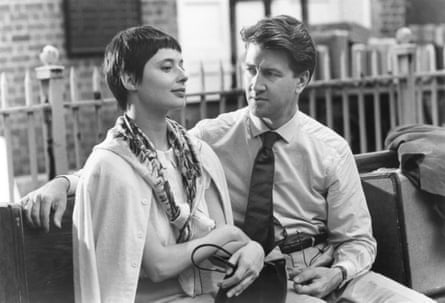
Born in Missoula, Montana in 1946, Lynch went to art college in the 1960s and made his first experimental short, Six Men Getting Sick, while a student at the Pennsylvania Academy of Fine Arts. Lynch moved to Los Angeles in 1971 and studied film-making at the AFI Conservatory, where he began filming his first feature Eraserhead. Finally finishing it in 1976, the surreal black-and-white fable was received largely with bafflement, and rejected from most film festivals, but in the late 70s became something of a success on the late-night “midnight movie” circuit.
Eraserhead’s impact led to an offer from Mel Brooks’ production company to direct The Elephant Man; starring John Hurt in a biopic of Joseph Merrick, the film about the disfigured 19th-century man was nominated for eight Oscars and secured Lynch’s Hollywood status. After turning down an offer to direct Return of the Jedi, Lynch agreed to make an adaptation of Frank Herbert’s epic sci-fi novel Dune, but the film was substantially recut in postproduction and proved a commercial and critical disaster. Instead of a planned Dune sequel, Lynch decided to make a more personal film: his dark noir thriller Blue Velvet was a cult hit and a hugely influential critical success on its release in 1986, and it resulted in Lynch’s second best director Oscar nomination.
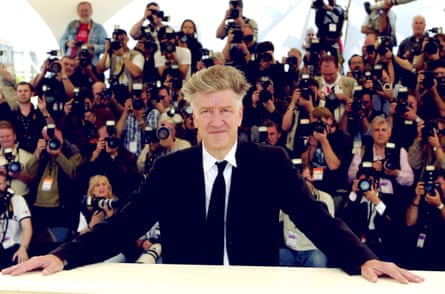
Lynch then embarked on another noirish project, the opaque and surreal murder-mystery Twin Peaks that – unusually for notable film directors of the period – was envisioned as a TV series; Lynch developed it with former Hill Street Blues writer Mark Frost. A mix of small town comedy, police procedural and surreal dreamworld, and described as “the most hauntingly original work ever done for American TV”, Twin Peaks defied early predictions of failure on its broadcast in 1990; as a pioneer of “high-end TV” it is arguably Lynch’s most influential work. A second series was broadcast later in 1990, a feature film prequel Fire Walk With Me was released in 1992, and a third series launched more than a quarter of a century later in 2017.
after newsletter promotion
As Twin Peaks went into production, Lynch began working on a feature film adaptation of Barry Gifford’s novel Wild at Heart, and cast Nicolas Cage and Laura Dern in the lead roles in a violent, haunting road movie with echoes of The Wizard of Oz. Wild at Heart premiered at Cannes in 1990 and won the Palme d’Or.
In 1997 Lynch began to edge back to his avant garde roots with Lost Highway, a surreal thriller starring Bill Pullman and Patricia Arquette, which flopped at the box office. In complete contrast Lynch released The Straight Story in 1999, a bluntly straightforward story about an elderly man (played by Richard Farnsworth) who drives 240 miles across the country on a motorised lawnmower.
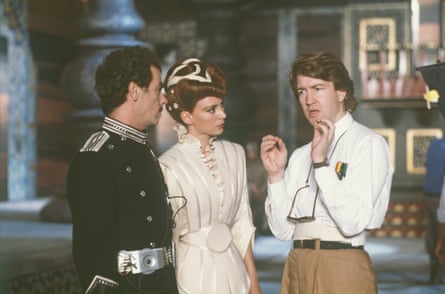
Lynch then embarked on another highly successful project: Mulholland Drive. Initially it appeared to go disastrously wrong, as Lynch had pitched it as a Twin Peaks-style TV series. A pilot was shot and then cancelled by TV network ABC. But the material was picked up by French company StudioCanal, who gave him the money to refashion it as a feature film. A noir-style mystery drama, it was another big critical success, secured Lynch a third best director Oscar nomination and in 2016 was voted the best film of the 21st century. Lynch followed it in 2006 with the three-hour surreal thriller Inland Empire, shot on video and starring Dern as an American movie star who appears to mysteriously transport into the Polish original of a film she is working on.
Thereafter Lynch appeared to step back from feature films, with only the third series of Twin Peaks in 2017 representing a big film-making project, although reports suggest he had been working on a series for Netflix. Lynch took acting roles in other people’s work, most notably as Gus the Bartender in Seth MacFarlane’s The Cleveland Show, and as legendary director John Ford in Steven Spielberg’s loosely autobiographical 2022 movie The Fabelmans.
Lynch was married four times and had a long-term relationship with his Blue Velvet star Isabella Rossellini.
Source: theguardian.com
